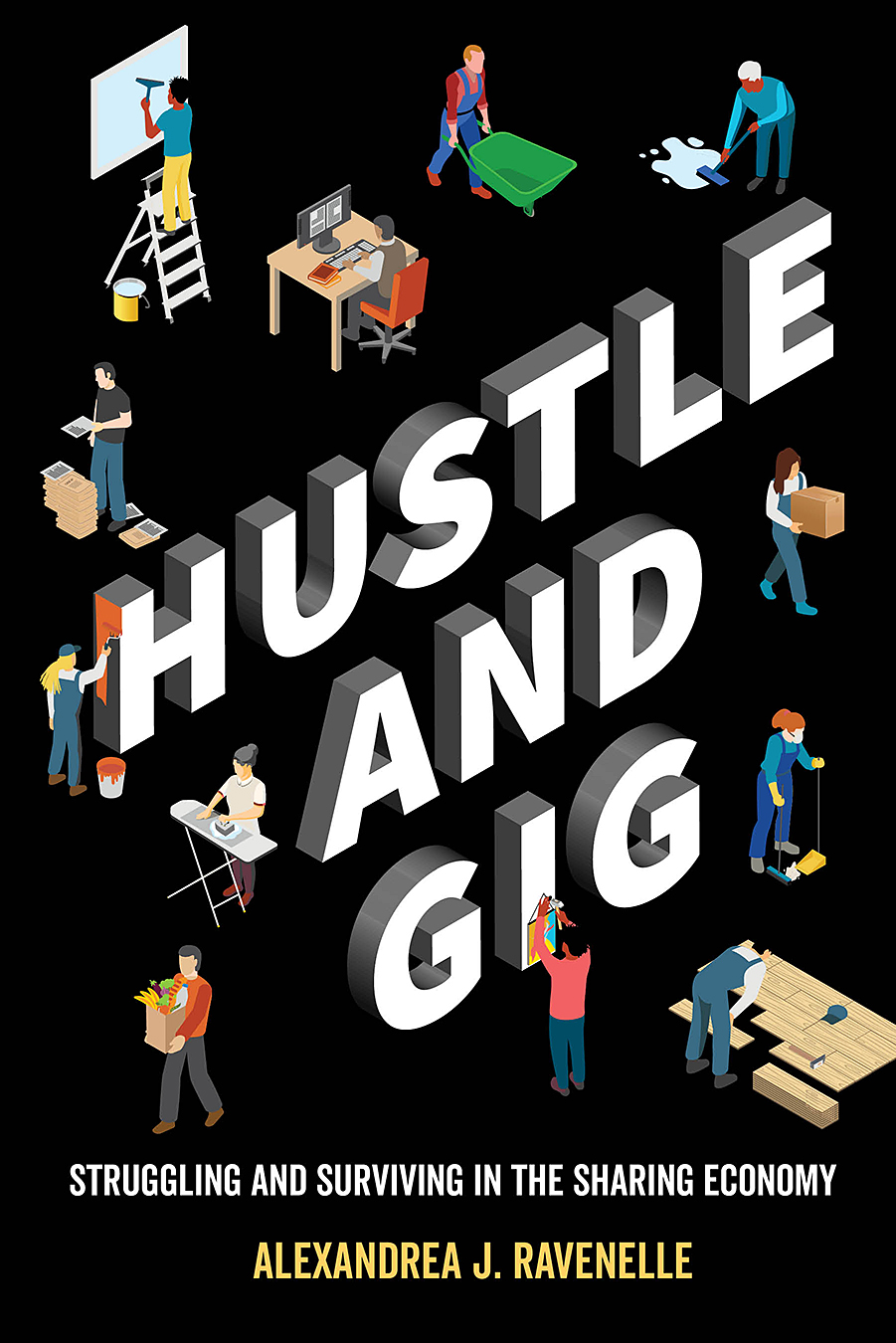The Perils of the Gig Economy in Pandemic
Posted on Sept. 15, 2020
When UNC sociologist Alexandrea Ravenelle was interviewing workers in 2015, “everyone said they just need to get back on their feet, save up money for something in particular, and then they’re going to go back into stable employment.” Five years later, “a surprising number” were still doing gig-based work. (iStock photo)
When the country moved into pandemic lockdown in mid-March, “essential workers” stayed on the job. It wasn’t just doctors, nurses and police officers who kept showing up to work. With millions of Americans ordered to stay at home, formerly mundane services like Amazon shipments, restaurant takeout and grocery delivery became vital lifelines.
People began to notice that many of those essential roles were filled by low-wage contract workers — the invisible army of laborers who make modern life function, even as they’re cut off from the benefits of traditional employment.
“We have taken an entire class of our economy, deemed them essential workers and put them out there risking their lives, risking their health and serving individuals who are sheltering in place behind Zoom,” said UNC sociologist Alexandrea Ravenelle. “It’s something we should all feel incredibly uncomfortable about.”

UNC sociologist Alexandrea Ravenelle. (Photo by JJ Ignotz)
Ravenelle has been uncomfortable about it for a long time. She spent the past several years interviewing workers who drive for Uber, deliver groceries for Instacart and perform household chores for TaskRabbit. Even though they provide services for some of the wealthiest tech companies in Silicon Valley, these workers are classified as independent contractors; they receive no health care, retirement or paid leave benefits. They pick up jobs dispensed over cellphone apps, performing the actual labor while the app-owning companies take a big cut.
“For all its app-enabled modernity, the gig economy resembles the early industrial age, where workers worked long hours in a piecemeal system, workplace safety was nonexistent, and there were few options for redress,” Ravenelle argued in her 2019 book, Hustle and Gig. “Despite its focus on emerging technology — apps, smartphones, contactless payment systems and review systems — the sharing economy is truly a movement forward to the past.”
After the pandemic started, Ravenelle secured a Rapid Response Research grant from the National Science Foundation for a project she called “Work in the Time of COVID-19,” interviewing frontline contract workers about their experiences, weighing the risks of continued work against the hardship of lost income. “For a lot of workers, the interview ends up being really cathartic,” she said. “It gives them a chance to process what’s going on, make sense of it. In the past, I had people give me a hug at the end of it.”
There are no hugs at the end of Zoom interviews, but Ravenelle has made the most of remote technology. The spring semester was her first teaching at Carolina, and she had to finish it from the small confines of her Manhattan apartment. She had been commuting back and forth to Chapel Hill, and like her students, she left over spring break assuming she’d soon be back on campus. Instead, she’s been hunkered down with her husband, two kids and the family dog. A colleague had to mail a box of supplies from her UNC office.
“This is such a difficult time for everyone,” she said. “But I feel like the University is doing a really good job of working with faculty, working with students. I got teary after our last Zoom class, realizing that I’m not going to see many of them again” because they were graduating.
And they were graduating into the worst economy since the Great Depression. Ravenelle spent some of her final classes inviting guest speakers to talk about what it’s like to start a career in a terrible job market. She tried to reassure nervous students that things will, eventually, get better.
“I know what it’s like to be graduating and feeling, ‘What am I going to do?’ ” said Ravenelle, who finished her undergrad years just as the dot-com bubble burst in the early 2000s. “I can’t imagine going from thinking you were graduating into a 3 or 4 percent unemployment rate into this economy.”
 Gig work is unlikely to provide a good alternative, she cautioned. She teaches in both sociology and the Shuford Program in Entrepreneurship, and she’s keenly interested in the disconnect between what the gig economy promises — freedom, flexibility, unlimited earning potential — and the meager reality of what it actually delivers. Signing onto an app that dictates assignments by algorithm is not the same thing as starting your own business.
Gig work is unlikely to provide a good alternative, she cautioned. She teaches in both sociology and the Shuford Program in Entrepreneurship, and she’s keenly interested in the disconnect between what the gig economy promises — freedom, flexibility, unlimited earning potential — and the meager reality of what it actually delivers. Signing onto an app that dictates assignments by algorithm is not the same thing as starting your own business.
“Sometimes calling something entrepreneurship is simply a way to offload risks onto workers and make them blame themselves if it doesn’t go well,” Ravenelle said.
Her research found that many of those who take on gig work consider it a short-term measure but end up stuck and stigmatized by employers. “When I was interviewing workers back in 2015, everyone said they just need to get back on their feet, save up money for something in particular, and then they’re going to go back into stable employment. And then five years later, a surprising number of people were still doing gig-based work.”
Part of Ravenelle’s interest in the “hustle and gig” economy comes from living a version of it. During graduate school, she taught at colleges and universities across the New York region, working on semesterlong contracts that left her scrambling for the next assignment. It’s a far cry from working in an Amazon warehouse, but Ravenelle is interested in the way precarious work is creeping up the income ladder. One of her ongoing research projects explores the world of white-collar contractors, like independent consultants and marketing specialists, who appear to make a solid hourly wage but suffer from the same lack of job protections and security that affect lower-income workers.
“Many of the elite gig workers I’ve spoken to, the work is just not dependable. Just like those workers for TaskRabbit or Uber, they don’t necessarily know how much they’re going to make that month or that day.” Independent contractors have their projects canceled without notice, have clients refuse to pay the agreed rate or find that it takes months of persistent nagging to get paid at all. “In reality, they are still exploited. Just in a different way.”
She’s been heartened by the attention paid to contract workers since the coronavirus crisis began but less optimistic about the long-term impact. As the economy struggles, more Americans may turn to gig work to make ends meet and find themselves hustling for years to come.
— Eric Johnson ’08
Thanks for reading the Carolina Alumni Review
Carolina Alumni members, sign in to continue reading.
Not yet a member? Become one today.
